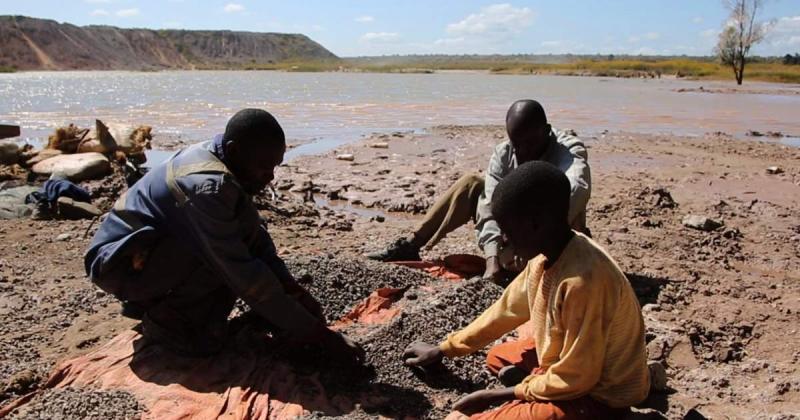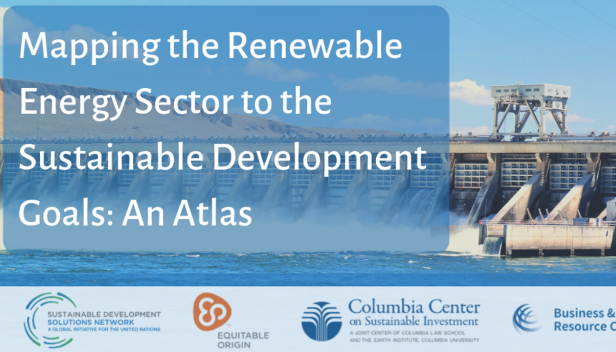Nathan Lobel of the Columbia Center on Sustainable Investment and Christen Dobson of Business & Human Rights Resource Centre give nine suggestions for renewables companies to ensure they are advancing all the SDGs
As the severity of our climate crisis looms ever larger, the need to rapidly transition to a low-carbon economy is increasingly urgent.
Renewable energy companies will be at the heart of this transformation, providing affordable, reliable and modern energy while staving off climate change’s worst effects. In doing so, renewable energy companies will contribute to the 2030 Agenda for Sustainable Development, which the 193 UN member states unanimously endorsed in 2015. The Agenda for Sustainable Development created a set of 17 Sustainable Development Goals (SDGs) to provide for inclusive, sustainable development by 2030, among them achieving universal access to clean energy and mitigating climate change.
Beyond their role advancing these two goals, renewable energy companies are important partners to promote all of the SDGs and realize their vision of a better and more sustainable future for all. This includes helping to alleviate poverty, promote sustainable economic growth, reduce inequality, and increase access to healthcare and education.
Our new report, Mapping the Renewable Energy Sector to the Sustainable Development Goals: An Atlas, provides companies with a roadmap to maximize positive contributions to and otherwise align their practices with the SDGs. The Atlas recommends specific actions for each goal to help build responsible practices into core business operations, and to work with other stakeholders – including affected communities, peer companies, and governments – in order to amplify impact.
Renewable energy companies can help achieve the SDGs and avoid negative impacts by respecting human rights in their core operations and supply chains
Given the urgency and scale at which renewables must be deployed to meet the world’s sustainable development and climate goals, it is critical that the industry understands the full range of its potential opportunities and impacts on all of the SDGs – both positive and negative.
While the renewable energy sector is already doing more than most to support the achievement of the SDGs, some renewable energy projects have been linked to allegations of human rights abuse, including labour rights concerns; harm to indigenous peoples’ livelihoods, land, and territories; and attacks on human rights defenders. In addition, the renewable energy sector’s reliance on minerals – such as copper, nickel and cobalt – sourced from countries with poor governance, poor human rights records, and conflict zones, can threaten the rights of workers and communities, if responsible practices are not put in place.
As the SDGs “seek to realize the human rights of all”, one of the best ways renewable energy companies can help achieve the SDGs and avoid negative impacts is by respecting human rights in their core operations and supply chains, in line with their responsibilities under the UN Guiding Principles on Business and Human Rights.

There is also a strong business case for renewable energy companies to help advance sustainable development. By aligning conduct with the SDGs, renewable energy companies can differentiate themselves from other energy providers to gain competitive advantages, attract and retain investors, and minimise environmental, social, regulatory, financial, reputational, and legal risk that could result in project delays and financial loss.
Companies can align conduct with the SDGs by prioritizing the following actions:
1. Increase access to clean, sustainable energy through renewable energy production.
2. Share the benefits of renewable development with local communities in the form of access to electricity, cost savings, rents and fees, and infrastructure.
3. Collaborate with governments, grid operators, utilities, and other stakeholders to reduce reliance on fossil fuels.
4. Treat host communities as partners, conduct inclusive community consultations prior to project development through project closure, and respect land tenure and indigenous peoples’ collective rights to land, territories and resources.
5. Train and employ local workers, and source goods and services domestically where possible, to contribute to economic development.
6. Adopt strong labour policies in line with the International Labour Organization’s Core Conventions, including paying workers living wages, providing benefits, protecting employees from discrimination and work-related safety risks, preventing child and forced labor, and respecting workers’ right to bargain collectively and associate freely.

The Atlas provides a roadmap for renewable sector companies to align to the SDGs.
7. Adopt human rights policies and perform human rights due diligence in line with the UN Guiding Principles on Business and Human Rights, including by conducting consultative human rights and environmental impact assessments and mitigating any negative impacts and externalities throughout project life.
8. Develop systems to identify and monitor supply chain impacts, especially as they relate to scope 3 GHG emissions, environmental impacts, labor protections, human rights abuses, and tax avoidance, and require suppliers, joint venture partners, and other business partners to respect human rights.
9. Introduce accessible grievance mechanisms in line with the effectiveness criteria in the UN Guiding Principles on Business and Human Rights, designed and monitored in collaboration with affected communities and workers.
The renewable energy sector is a vital partner, not just to realizing a fast transition and access to clean and affordable energy, but also in achieving all of the UN’s SDGs. We need additional leaders in the renewable energy sector to demonstrate that advancing the SDGs is both the right thing to do and good for business. This Atlas provides guidance for these companies to champion the SDGs and play an important role in realizing a more just, fair, and sustainable world for all.
Nathan Lobel is special assistant to the director at the Columbia Center on Sustainable Investment, and Christen Dobson is senior project lead and researcher at Business & Human Rights Resource Centre
Renewable energy sector Human rights SDGs Agenda for Sustainable Development


